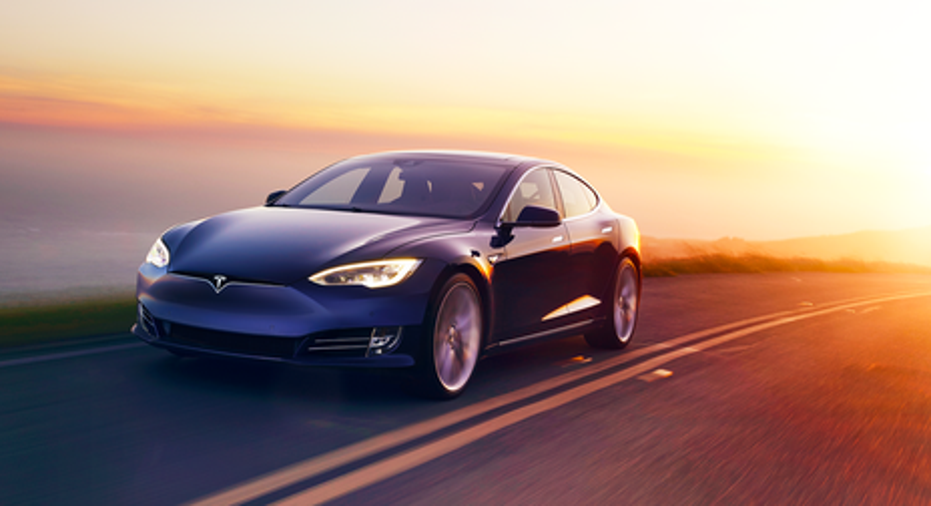Will Other Suppliers Follow Mobileye and Split With Tesla Motors?

A Tesla Model S. Image source: Tesla Motors.
The co-founder of Mobileye (NYSE: MBLY) said that the Israeli maker of driver-assistance systems ended its relationship with Tesla Motors (NASDAQ: TSLA) because it felt that Tesla "was pushing the envelope in terms of safety" with its Autopilot system, according to a Reuters report on Wednesday.
It seems clear that part of the problem was Tesla's aggressive schedule. That raises a sobering question: Will other Tesla suppliers follow Mobileye's lead and break with the upstart electric-car maker?
Mobileye's co-founder has strong words for Tesla's Autopilot
Amnon Shashua is the co-founder, chairman, and chief technology officer of Mobileye, a company that supplies driver-assistance systems to many of the world's major automakers. Mobileye is a key provider of software, hardware, and expertise critical to many of the self-driving systems in development around the world -- and to current versions of Tesla's much-hyped Autopilot driver-assistance system.
The Autopilot system has been embroiled in controversy since Tesla's acknowledgment that the system was a factor in the fatal crash of a Tesla Model S in May.
During Mobileye's second-quarter earnings call, Shashua surprised investors with the news that Mobileye and Tesla will part ways at the end of the life cycle of Moblieye's EyeQ3 processor chip. At the time, he didn't quite spell out the reason for the break, though the strong hint was that Mobileye was unhappy with Tesla's rush to bring driverless technology to market, and that the May crash brought those concerns to the fore.
Shashua was more direct in his comments to Reuters. "[Autopilot] is not designed to cover all possible crash situations in a safe manner," he said. "No matter how you spin it, [Autopilot] is not designed for that. It is a driver assistance system and not a driverless system." (Emphasis added.)
In other words, Tesla was taking risks with Autopilot that Shashua thought were unreasonable, so Mobileye dropped the Silicon Valley EV maker as a client.
An unusual public spat between an automaker and a supplier
Tesla, of course, has a different story. In the wake of Mobileye's announcement in July, CEO Elon Musk said, in effect, that Mobileye wasn't able to keep up with the pace of Tesla's product development.
It's very unusual for an auto-industry supplier to engage in a public war of words with an automaker. Generally, these kinds of disputes are handled in private. But Tesla isn't a typical automaker -- and its rift with Mobileye might be a sign of larger problems to come.
Mobileye is a solidly profitable company with a long list of big-name automaker clients. But here's the thing: It got those clients because it learned how to play by the auto industry's rules. Under those rules, any new system going into a production car requires extensive testing, what industry folks call "validation." Among other things, the supplier has to show that the system is safe, that it passes regulatory and legal muster, and that it's likely to keep working as it should for the life of the vehicle. All of that is extra important with a system that's related to safety.
But those things take time, and time is something that Tesla often doesn't want to spend. While I don't think that Tesla's explanation for the break with Mobileye quite rings true, it might be true that Mobileye chose not to keep up with Tesla.
Or put another way, that Mobileye -- with its conservative big-automaker view of the time and testing needed to validate any safety-related system -- wasn't willing to work on Tesla's hyper-aggressive schedules, out of concern that important corners could be cut.
The split with Mobileye has big implications for Tesla's ambitious plans
Tesla represented only a tiny portion of Mobileye's total sales, but its shares nonetheless dropped sharply when the split first became public. That was probably an overreaction; the break with Tesla is unlikely to make a significant dent in Mobileye's earnings or future prospects.
But it might be a different story for Tesla. Not because Tesla can't live without Mobileye (it can and will), but because of what the break says about Tesla's relationships with suppliers generally.
Musk has made no secret of the extreme pressure he puts on the company's suppliers to deliver on short time frames. Mobileye appears to have decided that playing along wasn't worth the risk.
But Shashua's unusually blunt public comments this week raise a big question: Are other Tesla suppliers pondering the risks that might be created by the extreme deadline pressure Musk applies?
If more suppliers decide that Tesla's business isn't worth the risks, that could throw some big wrenches into Tesla's ambitious production plans.
A secret billion-dollar stock opportunity The world's biggest tech company forgot to show you something, but a few Wall Street analysts and the Fool didn't miss a beat: There's a small company that's powering their brand-new gadgets and the coming revolution in technology. And we think its stock price has nearly unlimited room to run for early in-the-know investors! To be one of them, just click here.
John Rosevear has no position in any stocks mentioned. The Motley Fool owns shares of and recommends Tesla Motors. Try any of our Foolish newsletter services free for 30 days. We Fools may not all hold the same opinions, but we all believe that considering a diverse range of insights makes us better investors. The Motley Fool has a disclosure policy.



















